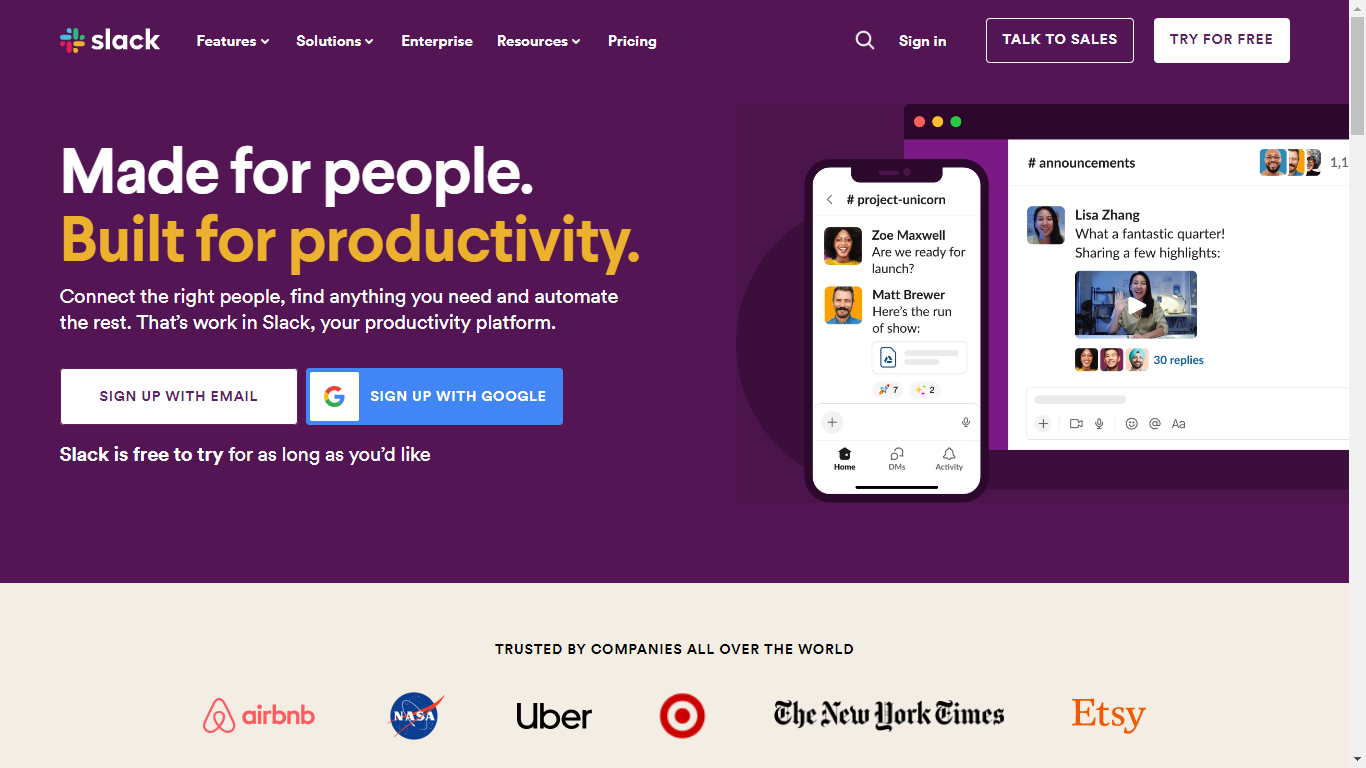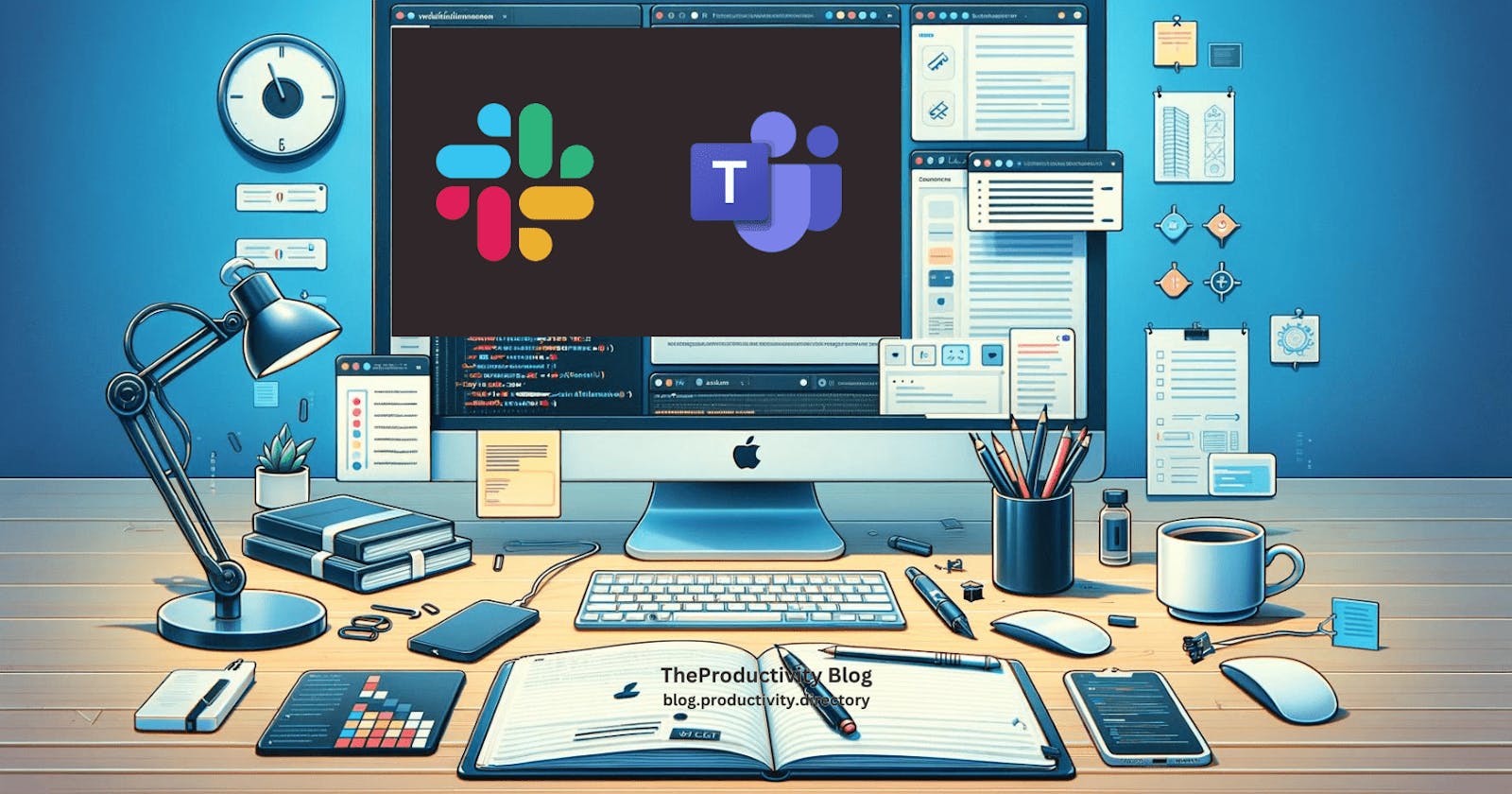The digital collaboration space continues to evolve, and with it, the perennial debate between Slack and Microsoft Teams grows ever more nuanced. As we step into 2024, businesses worldwide face the decision of which platform will best accommodate their communication and collaboration needs. This article dives deep into the contrasts, strengths, and potential deal-breakers of Slack and Microsoft Teams to help you make an informed decision.
Understanding Slack

Slack, known for revolutionizing the way teams communicate, offers an intuitive, flexible platform that adapts to various business sizes and types. It's particularly celebrated for its ease of use, extensive integration capabilities, and powerful search functions. Slack caters to a diverse audience by supporting real-time communication and collaboration through channels, direct messages, and integration with numerous third-party apps and services.
Top Features
Advanced search modifiers for efficient information retrieval.
Customizable sidebar for organized navigation.
Automated reminders and task list management.
Over 2,400 third-party app integrations.
Understanding Microsoft Teams

In contrast, Microsoft Teams is lauded for its seamless integration with the Office 365 suite, making it a robust choice for businesses already entrenched in the Microsoft ecosystem. It offers comprehensive communication solutions, advanced cybersecurity standards, and extensive collaboration features, all within a structured, corporate-focused interface.
Top Features
Deep integration with Microsoft 365 applications.
Threaded conversations for clear, organized communication.
Advanced cybersecurity and compliance standards.
Grid view for efficient team management.
The Great Debate: Slack vs Microsoft Teams
When choosing between Slack and Microsoft Teams, it's essential to consider several factors, including user interface, communication capabilities, security standards, and integration needs.
User Interface and Navigation
Slack is known for its user-friendly interface and customization options, making it easy for new users to adapt. On the other hand, Microsoft Teams offers a more structured interface, which might appeal to users familiar with the Microsoft ecosystem.
Communication and Collaboration
Both platforms excel in facilitating communication, but they do so in different ways. Teams is integrated deeply with Office 365 tools, providing a comprehensive solution for collaboration, while Slack offers more flexibility through its vast array of integrations and more informal communication style.
Security
For enterprises that prioritize security and compliance, Microsoft Teams might edge out, especially for those already using Microsoft 365. Slack has also made significant strides in security but is typically seen as more suited to smaller businesses or those with less stringent compliance requirements.
Pricing and Integrations
Your existing tech stack and budget will heavily influence your choice. Microsoft Teams could offer better value as part of the Microsoft 365 suite, while Slack might be preferable for teams looking for specific integrations or a more flexible pricing model.
Conclusion: Which One Should You Choose?
There's no one-size-fits-all answer. Microsoft Teams might be the go-to for businesses looking for an integrated Microsoft experience, especially those requiring extensive collaboration and meeting features. Slack, with its intuitive interface and broad integration capabilities, might be better suited for more dynamic, flexible teams.
In 2024, the choice between Slack and Microsoft Teams depends on your organization's unique needs, existing software infrastructure, and the way your team works. Whichever platform you choose, ensure it aligns with your business objectives, enhances your team's productivity, and fits within your cybersecurity framework.
For a more detailed exploration of Slack and Microsoft Teams, consider the specific needs of your team, the existing tech ecosystem in your organization, and how each platform aligns with your business strategies before making your decision.
Ready to take your productivity to the next level? Explore a vast array of productivity apps and tools, along with their alternatives, at Productivity Directory. Find the perfect fit for your workflow needs today!
